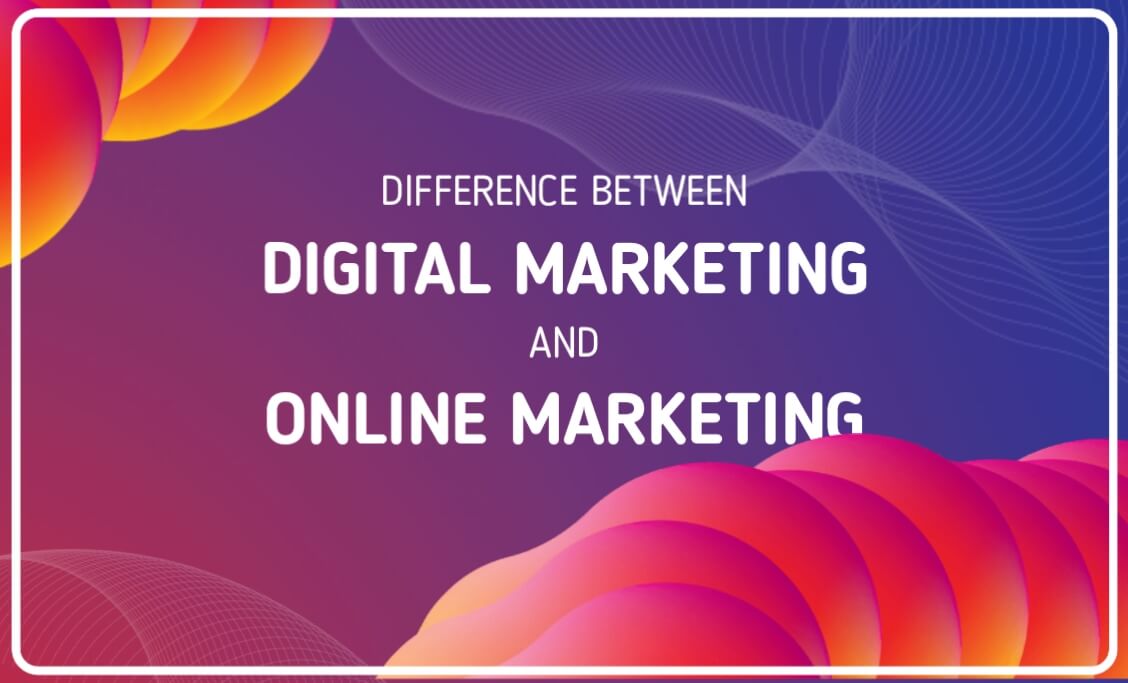Usually people thinks that Digital Marketing and Online marketing is same thing. But reality is different. Let's see how it is different.
Determined to make a good article on the midigixsolutions.blogspot.com blog today, I had to sit in deep thought for more than an hour. Ideas for writing are not lacking but it is really difficult to choose a topic to write. Because thinking of something for the first time is a bit special.
Just keep thinking about a certain article topic and be able to cover all the content on the website, both holistic and introductory.
While I was rearranging the directory of articles, I wondered whether to name one of the directories in the page as Digital Marketing or Online Marketing or Internet Marketing. Then, that is exactly what you will get in this blog.
What is Digital Marketing?
Nowadays, you will often hear words like Digital Marketing, Internet Marketing, or Online Marketing floating around the internet. There are many people who use these terms as synonyms and are interchangeable. But in fact, Digital Marketing is a more inclusive phrase and Online Marketing (or Internet Marketing) is just a part of Digital Marketing. So what exactly is Digital Marketing? Below I quote the definition from
Wikipedia:
"Digital marketing is marketing that makes use of electronic devices (computers) such as personal computers, smartphones, cellphones, tablets, and game consoles to engage with stakeholders. Digital marketing applies technologies or platforms such as websites, e-mail, apps (classic and mobile), and social networks. "
We are talking about definitions and each person will have different definitions and interpretations of what Digital Marketing is. But for me, Digital Marketing is divided into 2 very separate and clear parts which are Online Marketing (or Internet Marketing) and Non-online Marketing:
Online Marketing / Internet Marketing as its name includes advertising channels related to the need for an internet connection. Non-online Advertising, meanwhile, is mainly the advertising method in which you do not need a network connection.
We will have time to go deeper into each type of advertising in the upcoming articles and even with special marketing tips for your business but within this article, we will stop at a summary of these types of ads.
Online Marketing / Internet Marketing
Search Marketing (SEO & SEM)
Paid advertising on search engines like Google, Yahoo, and Bing (SEM) and website optimization to get higher rankings on the natural search results of the search engines. search (SEO).
Mobile Marketing
Advertising through mobile devices which may include application optimization for better display on the app market (app store optimization - ASO), push ads, display in apps to encourage users to install.
Email Marketing
Advertising in the form of emailing to customers in the list or database and introducing them to services, products, or news updates. Learn more about Email Marketing
Content Marketing
Method of advertising by creating content on all platforms that has the ability to create good interactions and attract users and thereby increase visits or encourage value creation.
Social Advertising
Paid advertising to convey messages to users through social networks such as Facebook, Twitter, LinkedIn to create value, revenue, or increase brand recognition.
Display
Programmatic advertising through platforms (publishers, ad networks, ad exchange, DSP) with the display of formats such as images, videos, HTML on websites, and applications in the system. of the provider. Learn more about display advertising.
Non-online Marketing
SMS
Advertising via SMS on the phone. Only brand name SMS messages (customer care and advertising).
TV / Radio
Advertise on TV and radio channels.
Digital Out-of-Home (OOH)
Outdoor advertising in electronic format such as LCD display screens (buildings, airports, and outdoors), electronic signage, etc.
The Difference Between Online Marketing and Non-Online Marketing
Here are 3 basic differences between online marketing and non-online marketing:
1. Measurement
Online marketing is more easily and effectively measured with the help of measurement tools (Google Analytics, for example). You can know exactly how many clicks come from which channel, how long a customer stays on the website, what page they leave from, and whether or not they make a purchase. Note that I only say that online marketing is easier to measure, not an accurate measurement.
Non-online marketing channels are not so easy because they do not depend on the website or the internet and are therefore more difficult to measure (similar to outdoor and traditional channels). For example, you never know how many people read your message when you send an SMS and how many of them make a purchase later.
2. Mode of operation
Online marketing channels depend on the internet (of course). Without the internet, there is no online marketing, that's all.
Non-online marketing channels are not dependent on the internet, but on telecommunications infrastructure (television, radio, telephone, etc.) and therefore whether or not they are active.
3. Purpose of use
There are two main purposes when advertising 1 is to increase conversions (conversion - sales, registration, etc.), 2 is to increase brand awareness (brand awareness).
Online marketing has the strength to help boost conversions because they can be easily measured so it can quickly optimize and improve campaign effectiveness even while executing.
Conclusion
Note that this does not mean that online marketing channels will not be able to increase brand awareness or vice versa, non-online marketing channels will not be able to increase conversions. And it doesn't mean that brand recognition doesn't help sell more or vice versa. What I want to say here is that each channel has a unique strength and depending on the purpose that marketers need to use properly.















No comments:
Post a Comment